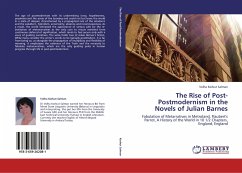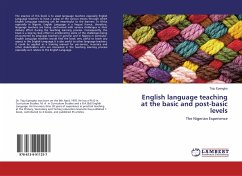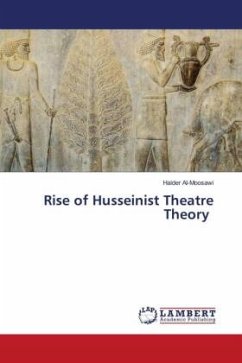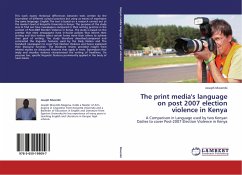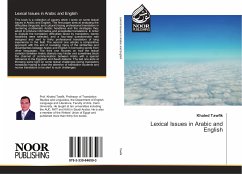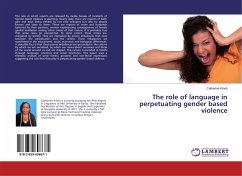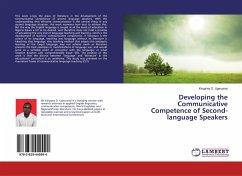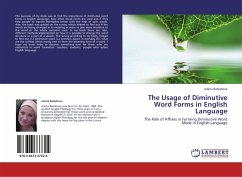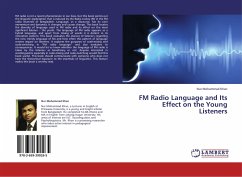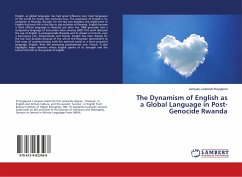
The Dynamism of English as a Global Language in Post-Genocide Rwanda
Versandkostenfrei!
Versandfertig in 6-10 Tagen
24,99 €
inkl. MwSt.

PAYBACK Punkte
12 °P sammeln!
English, as global language, has had great influence over most languages of the world for nearly two centuries now. The expansion of English is no exception in Rwanda, though. For the last two decades, the importance of English has been felt in the day to day activities of Rwanda. English became a third official language in Rwanda just after the 1994 genocide and a compulsory language of instruction since January 2009. This work discusses the use of English in post-genocide Rwanda and its impact on French, over a borrowing one, Kinyarwanda and French. English has risen sharply for the last two...
English, as global language, has had great influence over most languages of the world for nearly two centuries now. The expansion of English is no exception in Rwanda, though. For the last two decades, the importance of English has been felt in the day to day activities of Rwanda. English became a third official language in Rwanda just after the 1994 genocide and a compulsory language of instruction since January 2009. This work discusses the use of English in post-genocide Rwanda and its impact on French, over a borrowing one, Kinyarwanda and French. English has risen sharply for the last two decades because of the will of the Rwandan government to find ways of communicating with the external world in a more powerful language, English, than the previously predominant one, French. It also highlights major domains where English speaks of its strength and the factors that led to the spread of English.



